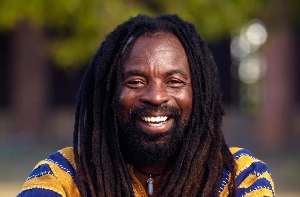Going into tonight’s Africa Cup of Nations semi-final again Cameroon, Asamoah Gyan must feel like he is walking a well trodden path.
Six times in six competitions, Gyan has made it to this stage of the tournament with Ghana.
But the ‘Black Stars’ have had a painful 32 year wait since last lifting the continental trophy. And for Gyan, the Africa Cup of Nations has been anything but painless.
Most Premier League fans will remember Gyan unkindly. His departure from Sunderland in 2010 to Al Ain of the United Arab Emirates surprised everyone, and angered many.
Only a year previous the Ghanaian had signed with the Black Cats for a club record transfer fee. A year later, once he was gone, Sunderland manager Steve Bruce lamented, “football leaves a bad taste in your mouth sometimes.”
For abandoning Sunderland and turning his back on European football, Asamoah Gyan was vilified as a mercenary. Even Abedi Pele, Ghana’s great attacking midfielder, criticised Gyan for wasting his talent.
When regarding his career, it is hard to argue against this label. His four season stay in the Arabian Gulf League with Al Ain and 2015 transfer to Shanghai SPIG suggests he has never been eager to make his way back into European football. But this is an impression that belies his great — if often troubled — international career.
With the No. 3 on his back – and often shaved into the side of his head – Gyan has led the Ghana attack for over a decade.
He has represented the Black Stars in three World Cups and six Africa Cup of Nations and in every one of those tournaments scored. Today he is Ghana’s captain, record goal scorer and most capped player.
But at the 2008 Cup of Nations in Ghana, a day after the host’s second victory in the group stage, Gyan was on the verge of quitting the squad.
Despite converting a penalty in the first game, Gyan’s wasteful performance in the second, a 1-0 victory against Mali, caused public outrage.
The supporters and media derided the young Ghana striker; “the very mention of whose name elicits a wrenching cry of dismay from Ghanaian fans,” wrote Greg Lalas in the New York Times.
Gyan received death threats. At their family home, his mother was harassed by a group of fans. Teammates, Michael Essien among them, persuaded Gyan to stay with squad and see the tournament through.
He did, and Ghana finishing third, but the striker failed to score again in the tournament.
Two years later, at the 2010 World Cup in South Africa, Gyan suffered again. Ghana progressed to the quarter-finals, as far as any African nation has gone before, where they faced Uruguay.
In the last minute of extra time, with the score 1-1, Luis Suarez saved a goal-bound Ghana header on the line with his hands. Gyan struck the subsequent penalty firmly but shot too high.
The ball smashed against the crossbar and before it had time to come back down behind the goal the final whistle blew. Uruguay won the penalty shootout and Ghana were out.
In a 2014 interview, Gyan spoke of how that quarter-final still haunted him.
Sometimes when I’m alone, I get up and put the DVD on and start watching that game. I wish the match could happen again because it really hurts me every time when I’m alone. It’s something that I can never forget.
But, as though a curse were following him, Gyan’s misfortune did not end in South Africa. Two years later he missed another crucial penalty, this time in the semi-final of the 2012 Cup of Nations.
Ghana lost the match 1-0. Once more Gyan was the villain.
The striker described the abuse he suffered following that penalty miss as “intolerable.” Shortly after the tournament, in a letter to the Ghana FA, he explained this mistreatment as the reason he had decided to take an “indefinite break” from international football.
It is at this point that the impression of Asamoah Gyan as a mercenary, as a man who has taken all the easy options, falls short. Throughout his career with the Black Stars, Gyan experienced personal disappointment and public hysteria.
It would be easy to understand if he had decided never to return to international football. But, after six months in exile, he returned to the Ghana squad as their new captain.
It is interesting to ponder how Gyan’s career might have turned out differently. If he had stayed in Europe, how much could he have achieved?
And what if, when he was still young, he had been treated more lightly by the Ghanaian media and public in 2008? Would he have scored that penalty against Uruguay had the consequences of missing been less severe?
At 31, Gyan is the oldest member of the Ghana squad. Having fallen short in the final twice before, this may be his last tilt at the Africa Cup of Nations.
But even if he were to end his career without the continental trophy, he will still go down as a Ghana legend, and a loyal one at that.
Opinions of Thursday, 2 February 2017
Columnist: ghanasoccernet.com



















